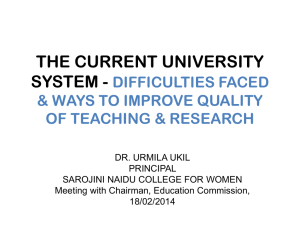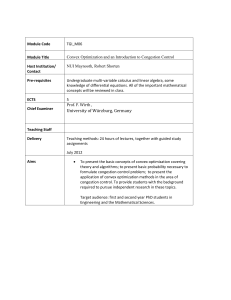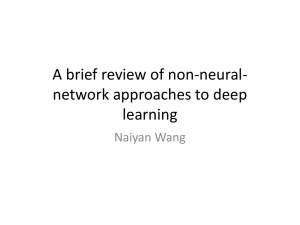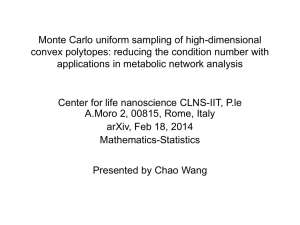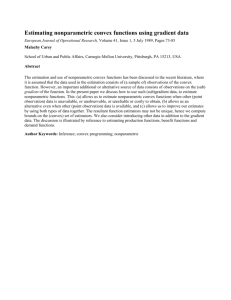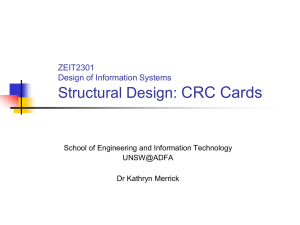yaşar üni̇versi̇tesi̇ - ASSOCİATE PROFESSOR SHAHLAR
advertisement
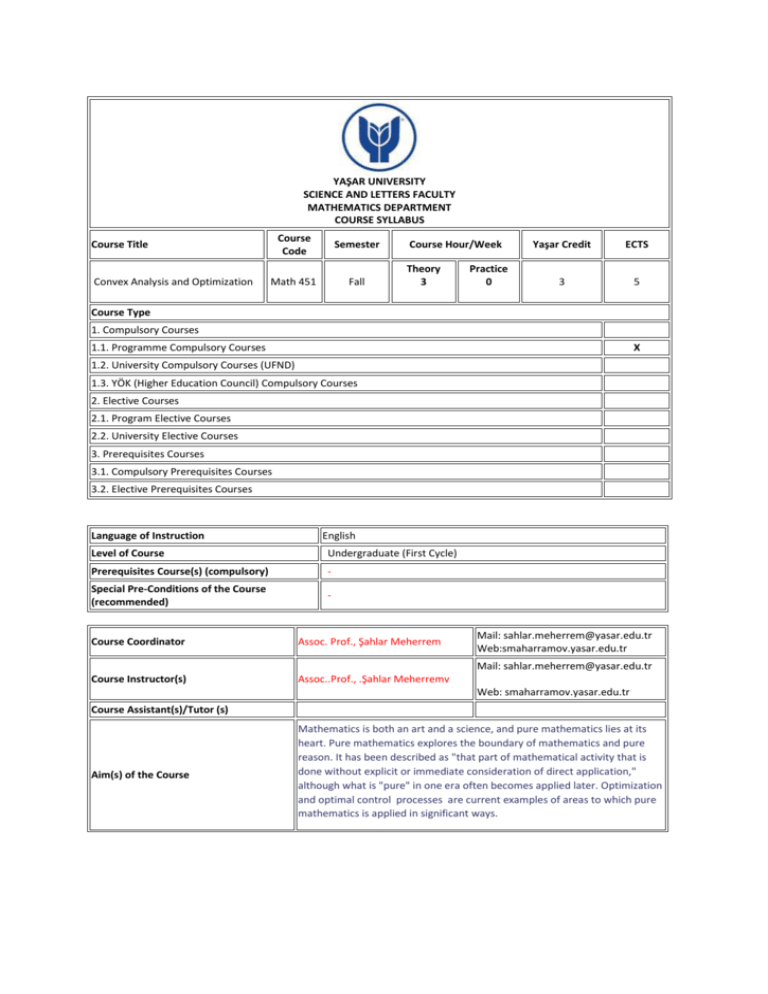
YAŞAR UNIVERSITY SCIENCE AND LETTERS FACULTY MATHEMATICS DEPARTMENT COURSE SYLLABUS Course Code Semester Math 451 Fall Course Title Convex Analysis and Optimization Course Hour/Week Theory 3 Practice 0 Yaşar Credit ECTS 3 5 Course Type 1. Compulsory Courses 1.1. Programme Compulsory Courses X 1.2. University Compulsory Courses (UFND) 1.3. YÖK (Higher Education Council) Compulsory Courses 2. Elective Courses 2.1. Program Elective Courses 2.2. University Elective Courses 3. Prerequisites Courses 3.1. Compulsory Prerequisites Courses 3.2. Elective Prerequisites Courses Language of Instruction English Level of Course Undergraduate (First Cycle) Prerequisites Course(s) (compulsory) - Special Pre-Conditions of the Course (recommended) - Course Coordinator Assoc. Prof., Şahlar Meherrem Course Instructor(s) Assoc..Prof., .Şahlar Meherremv Mail: sahlar.meherrem@yasar.edu.tr Web:smaharramov.yasar.edu.tr Mail: sahlar.meherrem@yasar.edu.tr Web: smaharramov.yasar.edu.tr Course Assistant(s)/Tutor (s) Aim(s) of the Course Mathematics is both an art and a science, and pure mathematics lies at its heart. Pure mathematics explores the boundary of mathematics and pure reason. It has been described as "that part of mathematical activity that is done without explicit or immediate consideration of direct application," although what is "pure" in one era often becomes applied later. Optimization and optimal control processes are current examples of areas to which pure mathematics is applied in significant ways. The following courses are designed for students who want to study topics in applied mathematics at a less intensive level than the applied math major courses which prepare students for graduate school Learning Outcomes of the Course Course Content COURSE OUTLINE/SCHEDULE (Weekly) Preliminary Preparation Week Topics Methodology and Implementation (theory, pratice, assignment etc.) Convex sets and Convex Functions Jonathan M. Borwein and Adrian S.Lewis, Convex Analysis and Nonlinear Optimization, Theory and Examples, Springer 2000 Chapter1 Theory and Practice Optimality conditions Jonathan M. Borwein and Adrian S.Lewis, Convex Analysis and Nonlinear Optimization, Theory andExamples, Springer 2000 Chapter2 Theory and Practice Optimality Conditions Jonathan M. Borwein and Adrian S.Lewis, Convex Analysis and Nonlinear Optimization, Theory andExamples, Springer 2000 Cchapter2 Theory and Practice Subgradients and convex functions. Jonathan M. Borwein and Adrian S.Lewis, Convex Analysis and Nonlinear Optimization, Theory and Examples, Springer 2000 Chapter3 Theory and Practice 5 Continuty of convex functions Jonathan M. Borwein and Adrian S.Lewis, Convex Analysis and Nonlinear Optimization, Theory and Examples, Springer 2000 Chapter4 Theory and Practice 6 Functional, increment of the functional Naidu, D.S., Optimal Control System, 2003 by CRC Press, Chapter 2.1.1-2.1.2 Theory and Practice 7 Functional, increment of the functional, Naidu, D.S., Optimal Control System, 2003 by CRC Press, Chapter 2.1.1-2.1.2 Theory and Practice 1 2 3 4 Preparation for Midterm Exam 50 min 8 9 10 Midterm 90 min 18.11.2015, 08.30-10.00 Differential and Variations, Optimum of Function and Functional, The Basic Variational Problem Naidu, D.S., Optimal Control System, 2003 by CRC Press, Chapter 2.1.3 and Chapter 2.2 Naidu, D.S., Optimal Control System, 2003 by CRC Pres Chapter 2.1-2.2 Naidu, D.S., Optimal Control The Basic Variational Problem, Euler-Lagrange System, 2003 by CRC Press Equations Chapter 2.3 Theory and Practice Theory and Practice Theory and Practice 11 Extrema of Functions with Conditions, Lagrange Multiplier Rules Naidu, D.S., Optimal Control System, 2003 by CRC Press Chapter 2.5 Theory and Practice 12 Extrema of Functional with Conditions, Naidu, D.S., Optimal Control System, 2003 by CRC Press Chapter 2.6 Theory and Practice 13 Variational Approach to Optimal Control Systems Naidu, D.S., Optimal Control System, 2003 by CRC Press, Chapter 2.7 Theory and Practice 14 Pontryagin Principle Naidu, D.S., Optimal Control System, 2003 by CRC Press Chapter 2.7 Theory and Practice 15 Final exam 1) Jonathan M. Borwein and Adrian Required Course Material (s) /Reading(s)/Text Book (s) S.Lewis, Convex Analysis and Nonlinear Optimization, Theory and Examples, Springer 2000 2) Donald E. Kirk, Optimal Control Theory, Optimal control theory. 1970 or 1998 Recommended Course Material (s)/Reading(s)/Other ASSESSMENT Semester Activities/ Studies NUMBER WEIGHT in % Mid- Term 1 40 Attendance 14 3 Quiz 4 5 Assignment (s) 2 2 Project - - Laboratory - - Field Studies (Technical Visits) - - Presentation/ Seminar - - Practice (Laboratory, Virtual Court, Studio Studies etc.) - - Other (Placement/Internship etc.) - - TOTAL 100 Contribution of Semester Activities/Studies to the Final Grade 50 Contribution of Final Examination/Final Project/ Dissertation to the Final Grade 50 TOTAL 100 CONTRIBUTION OF LEARNING OUTCOMES TO PROGRAMME OUTCOMES No Programme Outcomes Level of Contribution (1lowest/ 5highest) 1 1 2 To compare the given fundamental notions To illustrate the given concepts with examples 2 3 4 5 x x To conclude results by using basic definitions 3 4 5 6 7 8 x To demonstrate mathematical proofs clearly and correctly x To solve problems by analyzing mathematical theories, notions and data x To transfer the knowledge and solution offers related in the field x To use abstract thinking competence x To compare the given fundamental notions x ECTS /STUDENT WORKLOAD NUMBER UNIT HOUR TOTAL (WORKLOAD) Course Teaching Hour (14 weeks* total course hours) 14 Week 4 56 Preliminary Preparation and finalizing of course notes, further self- study 14 2 28 Assignment (s) 3 3 9 ACTIVITIES Presentation/ Seminars Week Number Number Quiz and Preparation for the Quiz 4 Number 2 8 Mid- Term(s) 1 Number 12 12 20 20 Project (s) Number Field Studies (Technical Visits, Investigate Visit etc.) Number Practice (Laboratory, Virtual Court, Studio Studies etc.) Number Final Examination/ Final Project/ Dissertation and Preparation Other (Placement/Internship etc.) 1 Number Number Total Workload 133 Total Workload/ 25 5.2 ECTS 5 ETHICAL RULES WITH REGARD TO THE COURSE (IF AVAILABLE) ASSESSMENT and EVALUATION METHODS: Final Grades will be determined according to the Yaşar University Associate Degree, Bachelor Degree and Graduate Degree Education and Examination Regulation PREPARED BY Assoc. Prof. Shahlar Meherrem UPDATED 12.09.2011 APPROVED
